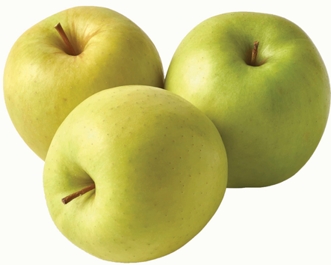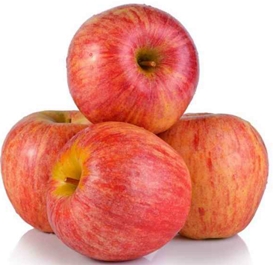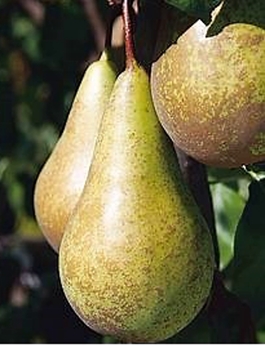

In this week's Journal, The English Apple Man looks at issues highlighted in the 'trade press'.
'Supermarket promotions aren't working for the grower'
Severe hailstorms and extreme heat leave parts of Italy's fruit and vegetable production base battered and bruised
NFU urges government action on food security report
'Supermarket promotions aren't working for the grower'
Northamptonshire-based farming correspondent Rupert Knowles argues that supermarket promotions often represent a loss for the producer that they simply cannot afford Promotions can sometimes result in a loss for the grower
Promotions can sometimes result in a loss for the grower
Supermarket promotions are not for the benefit of customers. They are not designed to cut the cost of food. Promos are a marketing tool to sell more of one product against others that compete. It is often the grower that funds them, not the supermarket - although the supermarket usually claims the credit.
Unlike widget makers, farmers have a finite stock of produce to market each year. They need to maximise return on x tonnes of y. They have no means of increasing x' The widget maker, by contrast, might run a night shift at a reduced margin and still benefit. So, assuming the farmer can sell all of y before it perishes, any promotion represents a loss to him.
If there is a glut, it might be advantageous to increase consumption of y before it perishes. But in all other cases, growers and farmers are subsidising the cost of living in promotions and they cannot afford to go on doing this.
This week we heard how the price of soft fruit has not increased in spite of the increase in growing, picking and marketing costs. Next year there will be less homegrown and more imports. It is not a sustainable situation.
-------------------------------------------------------------------------------------------------------------------------------------------------------
Severe hailstorms and extreme heat leave parts of Italy's fruit and vegetable production base battered and bruised
By Mike Knowles EUROFRUIT
Intense storms and a period of sustained high temperatures have damaged fruit and vegetable production and left growers across Italy under extreme pressure.
Below: recent hailstorms in Italy have been severe and destructive

This week, a large number of severe hail and windstorms reportedly caused "irreparable" damage to fruit and vegetable production across a large swathe of northern Italy. from Piedmont in the west, through Lombardy, to Veneto and Friuli in the east.
As many as 44 individual storms brought wind and hail hit the north of the country in a single day earlier this week, according to data posted by the European Severe Weather Database.
The timing of this series of weather events could not have been worse, according to national farmers, union Coldiretti, coinciding as they did with crops reaching peak production in fields.
The group's president, Ettore Prandini, called on the government to declare an official state of emergency, so that funds could be diverted to help agricultural regions devastated by the adverse conditions.
"The hailstones hit the fruit and cause it to fall." said a spokesperson for Coldiretti. "This damages it and stops it growing, or leaves blemishes that make it unsuitable for marketing."
The spokesperson added that hailstorms had become a "more and more frequent" event. "What also changes is the size of the stones, which appears to have increased considerably in recent years. These are real blocks of ice that are even larger than tennis balls."
Heatwave to the south
Also of grave concern to Coldiretti members is an "unbearable" heatwave across central and southern Italy.
 According to the group, there have been instances of fruit and vegetables "literally burning... in fields," leading some companies to lose as much as 90 per cent of crops including pepper, melons, watermelons, grapes, tomatoes and aubergines.
According to the group, there have been instances of fruit and vegetables "literally burning... in fields," leading some companies to lose as much as 90 per cent of crops including pepper, melons, watermelons, grapes, tomatoes and aubergines.
"Heat burns irreversibly damage fruit and vegetables," the organisation observed, "to the point where they are rendered unsellable. We try to bring harvests forward when possible, or we thin out the fruit on the trees, eliminating those that cannot survive and trying to save at least part of the production."
The storms and heatwave are the latest in a series of adverse weather events - including drought and floods - to hit Italy over the past few months.
-------------------------------------------------------------------------------------------------------------------------------------------------------
NFU urges government action on food security report
By Fred Searle FRESH PRODUCE JOURNAL
Union welcomes recommendations to bolster population health, stressing that a coordinated government approach to food policy is vital
NFU president Minette Batters said the report's finding that only 54 per cent of the food eaten in the UK is produced domestically is "shocking"
NFU president Minette Batters said the report's finding that only 54 per cent of the food eaten in the UK is produced domestically is "shocking"
The NFU has called on the Government to act on the Efra Committee's recommendations to bolster Britain's food security.
A new report entitled 'Food Security' by the Environment, Food and Rural Affairs (Efra) Committee' addresses the availability and affordability of food from the household to the national levels.
It calls on the Government to explore the options and affordability of extending the provision of free school meals and to break what it calls the 'junk food cycle' the UK suffers from.
The report predicts that the current situation - which is partly caused by consumer price inflation hitting its highest level in over four decades - is likely to contribute to making 40 per cent of the population obese by 2025.
Responding to the report's publication, NFU President Minette Batters said: "We have been calling for government to take our national food security seriously for several years and we echo the Committee's recommendation for strong leadership on the issue.
Below: Minnette Batters
 "As part of this leadership, the need for all government departments to have a coordinated approach towards food policy is vital. We welcome the recommendation of a Cabinet Office review into all aspects of food policy.
"As part of this leadership, the need for all government departments to have a coordinated approach towards food policy is vital. We welcome the recommendation of a Cabinet Office review into all aspects of food policy.
"At such a tricky time for many UK households, the report addresses much of the inflationary pressures experienced by both families and farmers and growers. Everyone should have access to affordable, quality, sustainable food and British farmers and growers need the support of government to have the confidence to continue producing.
"The report's finding that only 54 per cent of the food eaten in the UK being grown here is shocking and it is concerning that this number could decrease further if British food and farming isn't valued.
"In the same week as CF Fertilisers announced it will be permanently closing its Billingham ammonia plant, the report's acknowledgement of the risk of there only being one fertiliser factory in the UK is a timely one. Availability of fertiliser is a crucial element of domestic food security and government should look closely at how this could impact production.
"Food security matters and British farmers and growers are well placed to provide climate-friendly food for the nation, while protecting and enhancing our iconic countryside.
"Last summer the Prime Minister committed to introduce a new self-sufficiency target and annual reporting - clearly this needs to happen as a matter of urgency. With one of the best climates in the world for producing food, we should be aiming to produce more food here in the UK.
"For this to continue, we need to see government act on the recommendations made by the Committee to bolster Britain's food security."
-------------------------------------------------------------------------------------------------------------------------------------------------------
Prognosfruit 2023 - 2024
By Maura Maxwell EUROFRUIT
EU apple crop 3.3 per cent lighter than last year, while pear production is down 12.9 per cent
European Union apple production is set to decrease by 3.3 per cent in 2023 compared to last year to 11.410m tonnes. This puts the crop in line with the average of the previous three years (+0.3 per cent).
Prognosfruit 2023 - 2024
The forecast was announced by Philippe Binard, secretary general of the World Apple and Pear Association (WAPA) at the start of Prognosfruit 2023, which is taking place this week in Trentino, Italy and gathers more than 300 delegates from the apple and pear sector from Europe and beyond.

 Regarding the main varieties, Golden Delicious is set to increase by 11.7 per cent to 2.167m tonnes. Gala, the second-biggest variety, is expected to grow by 4.8 per cent to 1.5227m tonnes. Production of Red Delicious and Idared, on the other hand, are set to fall by 10 per cent and 6.1 per cent respectively.
Regarding the main varieties, Golden Delicious is set to increase by 11.7 per cent to 2.167m tonnes. Gala, the second-biggest variety, is expected to grow by 4.8 per cent to 1.5227m tonnes. Production of Red Delicious and Idared, on the other hand, are set to fall by 10 per cent and 6.1 per cent respectively.
The EU pear crop for 2023 is estimated to be down 12.9 per cent at 1.746m tonnes. Binard said the decline is due to the stark decrease in Italy's production (down 63 per cent on 2022) as well as a reduction in the French and Dutch volumes, which have fallen by 28.6 per cent and 3.1 per cent respectively.
 In 2023, the production of Conference pears is forecast to grow 8 per cent to 928.081 tonnes. William BC pear production, on the other hand, is expected to decrease by 36.8 per cent while Abate Fetel's production is forecasted to plummet to 52,846 tonnes, a drop of 69.3 per cent on 2022.
In 2023, the production of Conference pears is forecast to grow 8 per cent to 928.081 tonnes. William BC pear production, on the other hand, is expected to decrease by 36.8 per cent while Abate Fetel's production is forecasted to plummet to 52,846 tonnes, a drop of 69.3 per cent on 2022.
WAPA said the European trends are similar to those seen in other Northern Hemisphere countries such as China (whose apple crop will remain stable at 37.2m tonnes), and the US where production is set to dip by 3.6 per cent to 4.5m tonnes.
India's apple crop is also expected to decrease by more than 30 per cent to 1.9m tonnes. Pear production in the US is forecasted to decline by 3.7 per cent to 502,000 tonnes, while China's is projected to increase by 10 per cent to 17.6m tonnes.
Binard commented: "The season is starting on a positive background based on a relatively low crop, no overlap with the Southern Hemisphere, empty stocks from the previous season, and the ongoing renovation of orchards. We will need to continue monitoring the climatic conditions, as well as mitigating pests and diseases, while dealing with geopolitical and market access issues".
Looking ahead, Binard noted: "There will be great opportunities to stimulate apple and pear consumption in the upcoming season, while raising the prices to match the quality and the environmental, nutritional, and health benefits of apples and pears".
![]() That is all for this week
That is all for this week
Take care
The English Apple Man